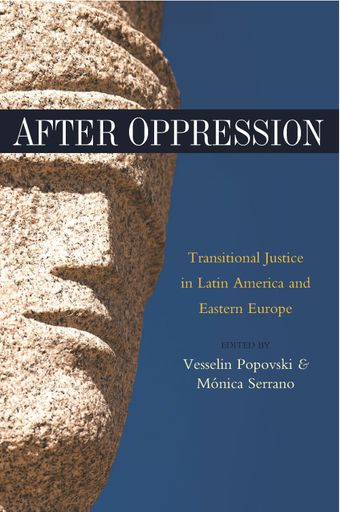- Home
- Books
- After Oppression
- Chapter
Transitional justice: Reframing the debate

- Authors: Alexandra Barahona de Brito and Laurence Whitehead
- Main Title: After Oppression , pp 439-462
- Publication Date: January 2013
- DOI: https://doi.org/10.18356/072b037d-en
- Language: English
Any democratic transition raises public debate about the nature and defects of the preceding regime. This is especially inevitable when there is a legacy of widespread human rights abuse and the legitimate voices of the victims have been suppressed. In such instances, a democratic transition will require some strategy for addressing these legacies. If a sector of the population is not “reintegrated” into a new democratic dispensation through the recognition of their prior violent exclusion and suffering, the new democratic polity will be fragmented and incomplete. As Alexander Wilde (1999) and others have noted, if such needs are suppressed or forcefully postponed, later on they may lead to “irruptions of memory” with destabilizing consequences. So, however problematic and contested such practices may be, they are also inescapable in real transitions.
© United Nations
ISBN (PDF):
9789210558938
Book DOI:
https://doi.org/10.18356/abdf8199-en
Related Subject(s):
Human Rights and Refugees
Sustainable Development Goals:
-
From This Site
/content/books/9789210558938s005-c001dcterms_title,dcterms_subject,pub_keyword-contentType:Journal -contentType:Contributor -contentType:Concept -contentType:Institution105
/content/books/9789210558938s005-c001
dcterms_title,dcterms_subject,pub_keyword
-contentType:Journal -contentType:Contributor -contentType:Concept -contentType:Institution
10
5

